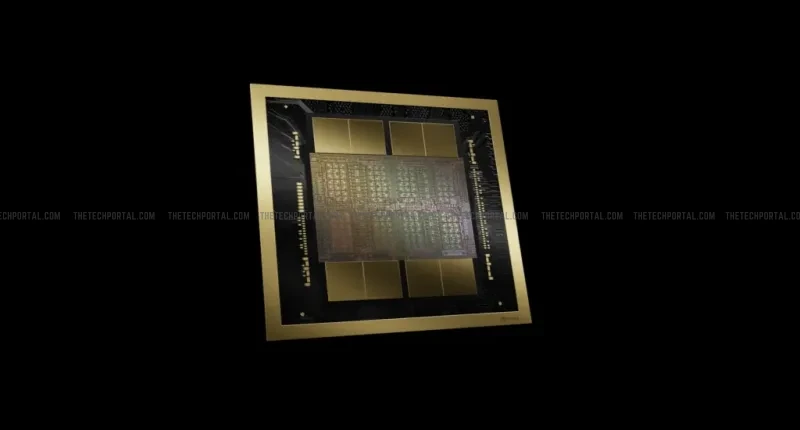In his bid to secure US dominance in the global semiconductor market, US President Donald Trump is doling out yet another announcements — one that will prevent China and other foreign countries from acquiring Nvidia’s latest AI chips. Speaking in a taped interview that aired Sunday on CBS’s “60 Minutes” and later to reporters aboard Air Force One, Trump said that the company’s latest Blackwell-series GPUs will be restricted to US firms only. “The most advanced, we will not let anybody have them other than the United States,” Trump said. “We don’t give the Blackwell chip to other people.”
The remarks, his clearest yet on AI export policy, suggest the White House may tighten controls even further than previous export restrictions imposed under both the Biden and Trump administrations. If implemented, the move would block China, as well as, potentially other allied nations from accessing Nvidia’s top-end chips. This marks a significant departure from the administration’s July “America’s AI Action Plan”, which aimed to expand AI exports to allied countries and streamline environmental and regulatory hurdles for the domestic industry.
Now, his latest comments imply a shift toward strict tech exclusivity, limiting access to the highest-performance chips to US companies alone. The remarks came on the heels of Nvidia announcing a deal to supply more than 260,000 Blackwell chips to South Korean conglomerates, as part of a broader push to expand its Asia-Pacific footprint. It remains unclear whether that agreement will proceed under the new restrictions. “The Blackwell is 10 years ahead of every other chip,” Trump said in his CBS interview. “We will let [China] deal with Nvidia, but not in terms of the most advanced.”
The president did not rule out permitting scaled-down versions of the chip to be sold to China. “It’s possible I’d make a deal,” he said in earlier remarks, referencing a less capable variant that would have “30% to 50% taken off.” This comes after Nvidia CEO Jensen Huang had said that the company has not applied for US export licenses to sell Blackwell chips to China, citing Beijing’s current stance toward the firm. “They’ve made it very clear that they don’t want Nvidia to be there right now,” Huang said at a developers’ conference, while emphasizing that access to China remains financially important for funding US-based research and development.
For its part, China has accelerated efforts to develop domestic alternatives to Nvidia’s GPUs following successive rounds of U.S. export bans. However, Chinese firms including Alibaba, Tencent, and ByteDance have warned that without access to advanced Nvidia chips, their AI model training capabilities could lag far behind US competitors by 2026.
According to media reports, if high-performance chips such as the B30A Blackwell GPU are withheld from export next year, the U.S. could maintain up to 30 times more AI computing power than China — a gap that would entrench American leadership in generative AI and defense-related machine learning. The comments come shortly after Trump met with Chinese President Xi Jinping during a regional summit in South Korea. Trump said the chip issue did not arise during their discussion but noted that the two leaders had a “great relationship.” The remarks also coincide with broader trade negotiations, including a one-year U.S.-China agreement under which Beijing will reduce rare earth export curbs and increase purchases of U.S. agricultural goods in exchange for lower American tariffs.
Trump, who has made technological self-sufficiency a key part of his second-term economic agenda, defended his administration’s tariff policies in the same interview, calling them a source of “vast fiscal income” for the US government. He warned that overturning those tariffs, now under review by the Supreme Court, would “immeasurably hurt the economy.”
The Tech Portal is published by Blue Box Media Private Limited. Our investors have no influence over our reporting. Read our full Ownership and Funding Disclosure →






